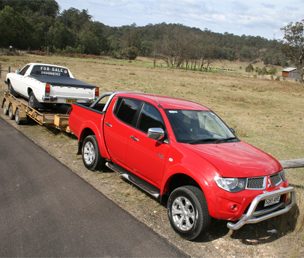Tax tips for pool and spa businesses


By Mark Chapman
With tax time just around the corner, businesses all over Australia are looking to get their books and records in order before the end of financial year and also to take advantage of all the available tax breaks in order to minimise their tax for this year.
However, recent research undertaken by H&R Block and Officeworks shows that when it comes to tax time, small businesses are frequently horribly underprepared, with more than a third of businesses finding the record keeping requirements of running their business stressful, and only five per cent of businesses taking full advantage of modern digital bookkeeping platforms to keep their records up to date throughout the year.
Worst of all, many small businesses aren’t aware of some of the main tax breaks they can utilise to keep their tax bills down. More than two-thirds of Aussie small businesses, for instance, don’t fully understand the $20,000 small business instant asset write-off and as a result are not taking maximum advantage of the tax break. With the end of financial year looming, and many retailers running special EOFY promotions, now is the perfect time to utilise the tax break.
So, to help Aussie spa and pool businesses turn the end of financial year from a time of stress to a time of opportunity, here are our top tax tips for getting the best tax outcome for your businesses before 30 June.
Utilise the small business instant asset write-off
Until 30 June 2018, small businesses can immediately write off any asset purchase costing less than $20,000, but caution needs to be taken when claiming the write-off.
1. Only small businesses qualify. This might seem obvious but you actually have to be in business to be a small business, not just a holder of an ABN number, and your business must have an aggregate turnover (including other businesses you own) of less than $10 million.
2. The amount you can claim is GST exclusive. This is relevant if your business is registered for GST and can claim an input tax credit on the purchase. The amount you can claim is the GST exclusive price.
3. The asset must have been installed and ready for use. This is particularly important if you purchased the asset just before the end of the financial year. If you’d purchased it before 30 June but didn’t have it available for use until July, you can only claim the deduction against next year’s profit.
4. You can claim a deduction for second-hand assets.
5. Beware private use. To claim the full deduction, the asset has to be used in the business and if there has been personal use, the deduction needs to be pro-rated to reflect this.
So, what could your business look to purchase by 30 June?
Purchase new tools
You can claim tools that are used in your business to earn income. Any tool or other item of plant or equipment which costs $20,000 or less can be written off immediately.
Update your motor vehicle
If you buy a van, ute or other motor vehicle for use in your pool or spa business, a tax deduction is available. If the vehicle costs less than $20,000, it can be written off straight away if you are a small business (particularly helpful if you acquire a second hand vehicle). If the vehicle costs more than $20,000, it must be written off over its useful life.
Update your technology
If your office is using slow or outdated computer equipment, the instant asset write-off can be used to get an immediate tax deduction for new computers, laptops, mobile phones, tablets and printers.
Don’t keep old building materials
If you have any obsolete, damaged or otherwise unusable materials left on your site at the end of the year, remember to write-off the cost before the end of the year in order to claim a tax deduction.
Clear out bad debts
If you have customers who can’t or won’t pay and you have done everything possible to recoup the debt without success, write it off by 30 June in order to claim a deduction. Make sure to record the write-off in the form of a Board Minute or other similar record.
Operate a cash business? The ATO is watching you
If you operate on a cash basis, make sure that all your takings are properly accounted for. The ATO has a major focus on cash-based businesses that don’t declare all their turnover, so don’t get caught in the spotlight.
The Golden Rule: Keep Records
Good record keeping is your best friend for efficient business management and will also make life easier if the ATO asks you questions.
Tax law requires that records be kept for five years, and they should include:
• Sales receipts
• Expense invoices
• Credit card statements
• Bank statements
• Employee records (wages, super, tax declarations, contracts)
• Vehicle records
• Lists of debtors and creditors
• Asset purchases.
Records can be kept on paper or electronically, but should be easily retrieved. In our experience, businesses often stumble when asked by the Tax Office to verify transactions by providing supporting records, with the consequence that even “innocent” businesses can find themselves stung by the tax man where they are unable to provide the requested evidence.
Mark Chapman is H&R Block’s tax communications director. For more information visit www.hrblock.com.au.



